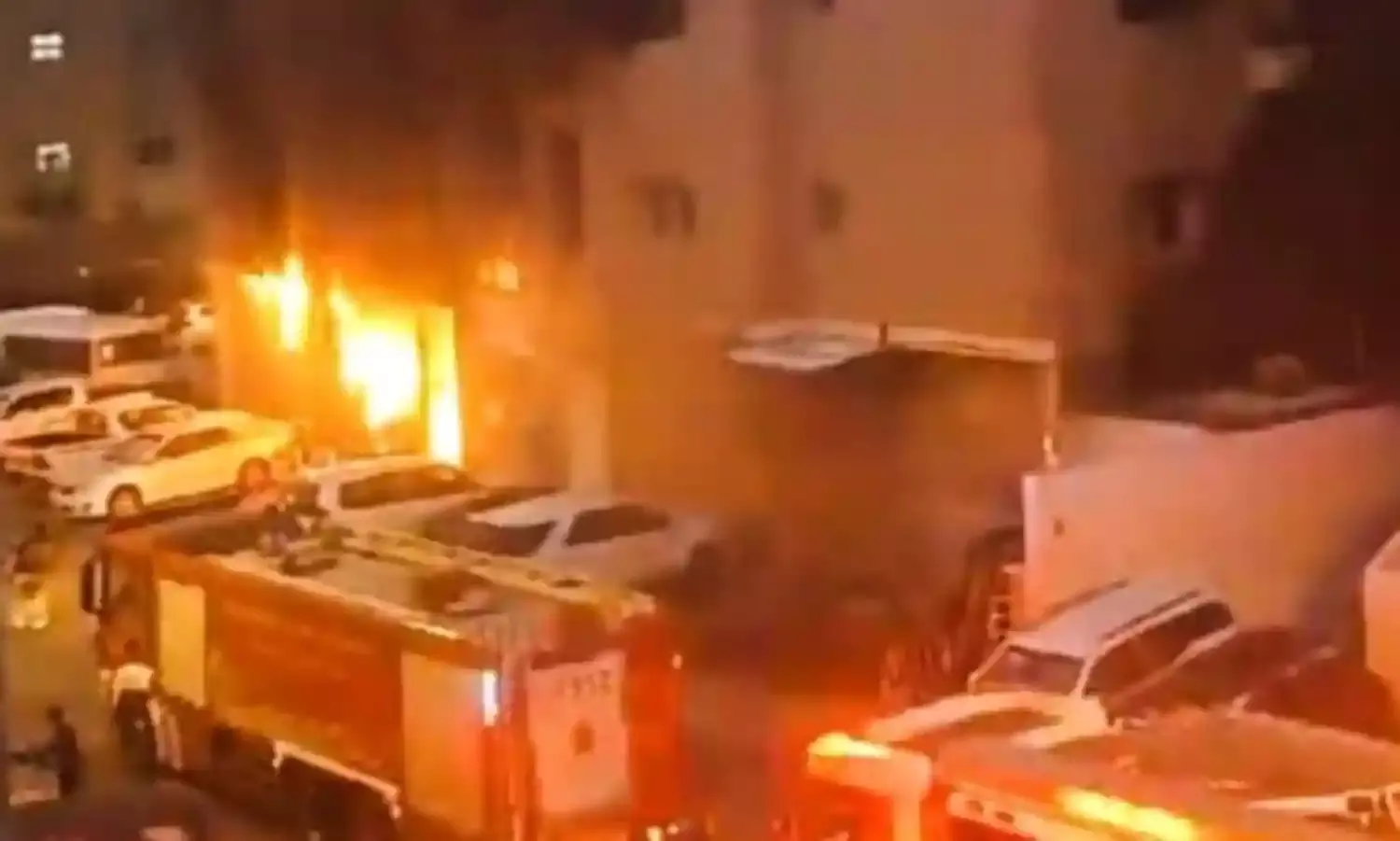45 Dreams End In Kuwait Fire
23 dead from Kerala alone

The mortal remains of 45 Indians killed in a devastating fire in Kuwait’s Al-Mangaf building on June 13 arrived on Friday at the Cochin International Airport. A special Indian Air Force plane brought the bodies. The total killed in the inferno were 49 including nationals from other countries.
According to reports, of the 45 as many as 23 are from Kerala and the rest from Tamil Nadu, Andhra Pradesh, Karnataka, Bihar, West Bengal, Odisha, Maharashtra, Punjab, Haryana, Uttar Pradesh and Jharkhand.
Those killed were someone’s father, brother or son and they had all gone there with a dream to make it big, earn enough for a better future for themselves and their families. They struggled despite all odds. But fate had something else in store. In one stroke their dreams were shattered and their lives were snuffed out.
Twenty-seven-year-old Sreehari Pradeep from Kottayam, a bright smiling mechanical engineer, took up his first job just last week with a company where his father had already been working. He was one among 45 other Indians whose life came to an end.
Pradeep, Sreehari’s father, was living a few buildings away. As soon as he heard the news he rushed from one hospital to another, hoping that his son was still alive. Finally, he found his son but in a hospital mortuary.
Likewise, Binoy Joseph (44) and Sajan George (29) went to Kuwait weaving dreams and aiming to have a prosperous life but they were short lived. Thrissur based Binoy reportedly arrived in Kuwait just five days ago. He leaves behind his wife and two daughters, the younger one only in class 1.
It is said Binoy came to Kuwait so that he could build a house for his family. He had bought land. Binoy was already middle aged, he thought it best to take up a job in Kuwait and repay the liabilities he had incurred.
In the case of Sajan, who was a postgraduate degree holder in engineering and was already working as an Assistant Professor in a private college, went to Kuwait in April and had just sent his first salary home.
It is learnt that some of the victims were charred to death and some died of suffocation. Kuwaiti authorities completed DNA testing on the dead before handing over the mortal remains to the Indian officials for repatriation.
On the tragic incident, Minister of State for External Affairs Kirti Vardhan Singh said, “Our embassy staff there (Kuwait) is constantly monitoring all the injured people in the hospital. We went there yesterday, visited every single person who was admitted in the five hospitals. I am happy to tell you that by God's grace most of them will be discharged in two-three days. The hospital authorities are taking exceptionally good care of them.
“We met the minister for interior of Kuwait, and he assured us that this kind of an incident will never happen again. They are very sensitive about it, concerned about it. The Kuwaiti authorities are very sad about the incident, and they have assured us that they will take all steps so that these kinds of unfortunate incidents are not repeated again.”
The Kuwaiti authorities have already ordered an investigation into the incident and assured that the guilty will be held accountable.
Indian migrant workers constitute a huge chunk of the foreign workforce in the Gulf. As many as 8.8 million Indians live and work there. Their contributions from the savings they earn and send back home is over a fourth of the diaspora’s annual remittances.
In Kuwait, Indian migrant workers are employed as carpenters, masons, electricians, construction labourers, factory and domestic workers, delivery agents and their number constitutes about a fifth of the total workforce of the country.
The living conditions of these unskilled, semi-skilled workers and labourers are known to be poor. The Kuwait fire incident underlines the need for the newly formed Indian government to place the issue of safeguarding the lives of Indian migrant workers on the discussion table with the host countries.


